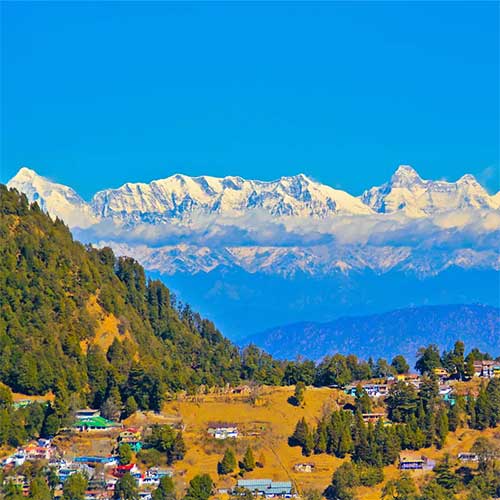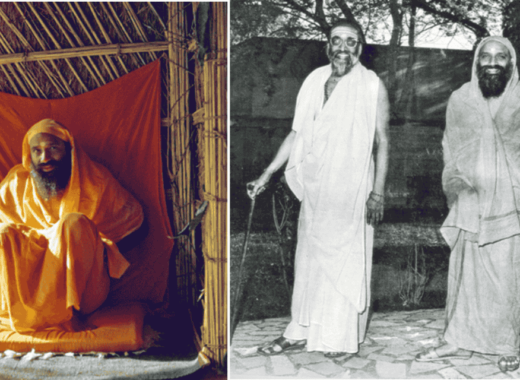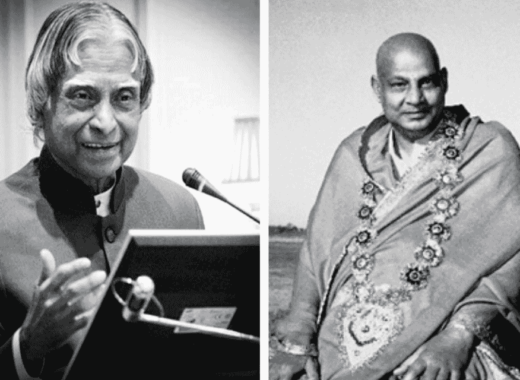Dr. A. P. J. Abdul Kalam’s Life And Meeting with Swami Sivananda Saraswati in Rishikesh
 By inRishikesh - Oct 13, 2024 1936 Views
By inRishikesh - Oct 13, 2024 1936 Views

Dr. “A.P.J” Abdul Kalam, one of India’s most revered scientists and the 11th President of India, is widely known for his contributions to aerospace engineering and his inspiring journey from humble beginnings to the highest position in science and leadership. However, a lesser-known but profoundly impactful chapter of his life was his transformative encounter with Swami Sivananda Saraswati in Rishikesh. This meeting not only altered the course of his career but also deeply influenced his spiritual and philosophical outlook.
Dr. “A.P.J” Abdul Kalam’s Early Life And Pursuit Of Knowledge
A.P.J”Abdul Kalam was born in a middle-class family on 15 October 1931 at Rameshwaram, Tamil Nadu. Kalam’s full name was Avul Pakir Jainulabdeen Abdul Kalam. His father’s name was Jainulabdeen Marakayor, who was a boat owner and imam of a local mosque and his mother’s name was Ashiamma, who was a housewife. Kalam was the youngest child of four brothers and one sister.
He earned a degree in Aeronautical engineering since it is a specific degree from Madras Institute of technology. He was a Project Director of the SLV III, the first satellite launch vehicle which was both designed and made in India. His work on India’s missile and space programs earned him the title of “Missile Man of India.
Dr.“A.P.J”Abdul Kalam’s Awards And Honours
- Kalam won many awards from both the Indian and International communities. He received 7 honorary doctorates from 40 universities.
- Abdul Kalam was felicitated with a Padma Bhushan in 1981 and Padma Vibhushan in 1990.
- He also received India’s Highest Civilian Honor,The Bharat Ratna in 1997 for his dedication and contribution to science and engineering and service to Indian Government.
Writings of Kalam
He wrote many books some of them are:
- Wings of Fire (autobiography)
- Ignited minds
- Learning How to Fly
- India 2020: A Vision for the New Millennium.
The Turning Point: Meeting Swami Sivananda Saraswati
When “A.P.J” Abdul Kalam was in school, he always had an ambition to become an Air Force Pilot. He was always fascinated by the sky and the flight of birds. He used to watch cranes and seagulls which makes him very curious.
In 1957, “A.P.J” Abdul Kalam came to Dehradun for his interview at the Air Force Selection Board. He was ranked 9th in the Airforce selection result, out of which only 8 candidates were got selected which made Kalam disappointed.
When Kalam failed in the interview he trekked down to Rishikesh and took a bath in the Ganga River, It was here that he had a life-altering meeting with Swami Sivananda Saraswati, a renowned spiritual leader and founder of the Swami Sivanand Ashram of Divine Life Society.
About Swami Sivananda Saraswati
Swami Sivananda Saraswati was a revered spiritual leader known for his teachings on Vedanta and yoga. He encouraged people to lead a life of service, selflessness, and devotion to the divine. His teachings were grounded in the principles of self-discipline, meditation, and surrender to a higher power.
When “A.P.J” Abdul Kalam met Sivananda Saraswati he inquired about the source of kalam’s sorrow. Kalam told him about his unsuccessful attempt to Join the Indian Air Force and his desire to fly. Swami Ji looked at him and then he opened the 11th chapter of Bhagavad Gita when Arjuna told Krishna that he was afraid of fighting in the battle,and “Krishna told him Defeat the Defeatist Tendency”. Swami Sivananda’s mantra, “Defeat the defeatist tendency,” became a guiding principle for Kalam.
“A.P.J” Abdul Kalam wrote in his famous autobiography,Wings of Fire, when the student is ready, the teacher will appear. He was the teacher to show the way to a student who had nearly gone astray. Swami Ji told Kalam Accept your destiny and go ahead with your life you are not destined to become a Pilot. What you want to become is also not revealed now but it is predetermined.
The Enduring Influence of Swami Sivananda
The impact of Swami Sivananda’s teachings on Kalam’s life extended beyond his professional achievements. Kalam often spoke about the importance of spirituality and moral values in personal and professional life. He believed that true success was measured not by material accomplishments but by one’s ability to contribute positively to society.
Kalam’s books, such as “Wings of Fire” and “Ignited Minds”, reflect his spiritual journey and the influence of Swami Sivananda. He emphasized the need for a harmonious blend of science and spirituality, advocating for a holistic approach to education and personal development.
Dr. Kalam’s focus on education, innovation, and national development was consistently underpinned by his belief in serving a higher purpose. He saw science and technology as tools for improving the lives of the masses, but he also stressed the need for ethical leadership and compassion. His vision for India extended beyond economic progress; he dreamed of a nation that was spiritually awakened and socially equitable.
Conclusion
Dr. “A.P.J”. Abdul Kalam’s life is a testament to the transformative power of mentorship and spiritual guidance. His encounter with Swami Sivananda Saraswati in Rishikesh was a turning point that reshaped his outlook on life and fueled his dedication to serving the nation. Kalam’s legacy continues to inspire millions, reminding us that true greatness lies in the pursuit of knowledge, the resilience to overcome failures, and the commitment to uplift humanity.
In reflecting on Kalam’s journey, we are reminded of the profound impact that a single encounter can have on an individual’s life. Swami Sivananda’s wisdom not only guided Kalam through a period of personal turmoil but also ignited a spark that would illuminate the path for future generations. Dr. Kalam’s life story is a beacon of hope, illustrating that with the right guidance and an unwavering spirit, one can transcend challenges and achieve greatness.








